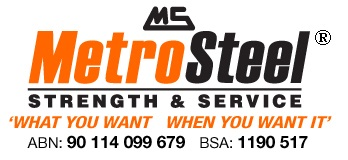Most people when they think of alumimum probably think of soft drinks and beer cans so you might be surprised to know that aluminium has way more uses. In previous blogs we’ve discussed how stainless steel is one of the most popular metals for construction and manufacturing available today so this blog talks about how fabricated alumimium is a close contender in some applications. So let’s dive in and take a look its many benefits:
Affordability
Aluminium is one of the least expensive materials that’s strong enough for heavy duty applications and often provides an affordable option for machinery enclosures, building materials, and electrical components.
Flexibility
Many industrial metals, steel included, are relatively rigid. While this is a good thing for projects requiring stability, their capabilities are more limited with regards to shaping. Aluminium on the other hand is very flexible and can be bent and welded into shape, making it ideal for small intricate components.
Durability
Aluminium is strong with a high strength to weight ratio. This means that even thin aluminium panels are able to withstand considerable force over a long period of time. When used in roofing for example, aluminium can last for up to 35 years.
Non-magnetic
Many of the most commonly used metals have magnetic properties, even some kinds of steel. Aluminium is not magnetic and is therefore an essential part of electrical applications.
Lightweight
While strong, aluminium is also very light in weight and in fact weighs less overall than most other building materials. In fact, an aluminium product can be two thirds less weightwise than the same product made from stainless steel.
Resistant to corrosion
Just the same as stainless steel, aluminium is highly resistant to corrosion – in fact, when it’s fabricated alumimium is totally resistant to corrosion, unlike other metals. With routine maintenance and proper finishing, aluminium is resistant to most other forms of corrosion.
Aesthetics
Many builders and manufacturers choose aluminium for its appearance alone. Because it can accommodate a wide variety of finishes, it’s ideal for the outer surface of machinery and construction. It can also be polished to a gorgeous mirror finish.
Resistance to low temperatures
Although aluminium expands more than stainless steel when exposed to high temperatures it copes extremely well with lower temperatures. This makes it the perfect choice for enclosures and components in such things as air conditoning units, nuclear reactors, and condensors.
Recyclable
Aluminium is 100% recyclable as is stainless steel. In fact recycling aluminium saves as much as
90% of the energy used to manufacture new aluminium, making it one of the most eco-friendly options out there. It also doesn’t emit any toxins and has no toxic properties whatsoever, which makes it a highly sustainable material.
Conductivity
Aluminium is good at conducting both electricity and heat which is why it’s often used in heating and cooling units as well as electrical applications. It can even be found in the tiny components of video systems and computers.
When you’re in need of a metal component for a new project, equipment or accessories, stainless steel and aluminium may both be suitable options. At Metro Steel we work with both metals and can advise you on your best option. Give our experts a call on 07 3204 1000 or drop by our premises at Kabi Circuit, Deception Bay for a chat.
 Talk to an Expert (07) 3204 1000
Talk to an Expert (07) 3204 1000 Working Hours - Mon – Fri 7:00 AM – 4:00 PM
Working Hours - Mon – Fri 7:00 AM – 4:00 PM